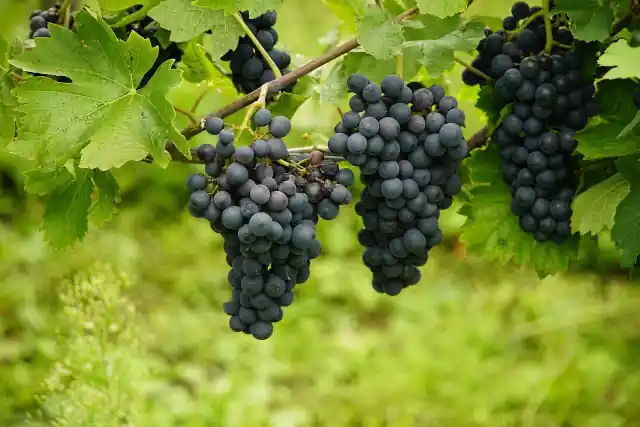
In a year characterized by unpredictable weather patterns, Bulgarian wine producers are grappling with significant challenges that are expected to drive up grape prices and lead to a reduced yield.
The country’s vineyards have experienced a rollercoaster of climatic conditions, leaving many producers uncertain about the future of their harvests.
Atanas Vasilev, chairman of the National Association of Bulgarian Vintners (NABV), expressed his concerns in a recent interview with Agri. BG.
“The year has been quite unpredictable in terms of weather,” Vasilev said. “We began with a mild winter that saw little precipitation, followed by a spring marked by heavy rains and hail, and now we’re facing severe drought, creating challenges we are unsure how to tackle.”
This erratic weather has placed immense stress on Bulgaria’s vineyards. The unusual climate patterns have caused the growth cycle of the vines to advance by approximately three weeks compared to a typical year.
This accelerated timeline means that the vines are required to perform crucial functions, such as supporting fruit development, at a much faster rate than usual.
The impact of the extreme weather is felt across various regions of Bulgaria. Some areas have been fortunate enough to receive adequate rainfall, which has partially mitigated the effects of the drought.
However, many other vineyards are suffering from severe water shortages. This disparity in weather conditions has created a mixed scenario across the country’s wine-growing regions.
The lack of soil moisture and essential minerals is expected to significantly affect the quantity and quality of the grape harvest.
Vasilev highlighted that the ongoing drought is leading to reduced grape yields, which, coupled with the increased costs of production, will likely drive up the price of wine grapes. “The lack of soil moisture and essential minerals will likely lead to a reduced quantity of grapes,” Vasilev noted.
Producers are facing mounting pressure as they work to adapt to these challenging conditions. The combination of drought, accelerated growth cycles, and variable weather has created an environment where traditional agricultural practices may no longer be sufficient.
Many vintners are now exploring alternative methods and technologies to manage their vineyards more effectively under these new circumstances.
The economic implications of these challenges extend beyond the vineyards. The anticipated rise in grape prices is expected to impact consumers as well.
As the cost of production increases, the price of wine is likely to follow suit. This shift in pricing could have broader effects on the wine industry, influencing everything from export markets to local consumption patterns.
Despite these difficulties, Bulgarian wine producers remain hopeful. The resilience of the country’s viticulture industry has been tested before, and many are confident that they will find ways to navigate these current challenges.
The industry is also looking to government and agricultural organizations for support and resources to help mitigate the effects of the extreme weather.
As Bulgaria’s wine producers brace for the impact of this unpredictable year, all eyes will be on the harvest and its outcomes. The coming months will be critical in determining how well the industry can adapt to the ongoing climate challenges and what the long-term effects will be on grape prices and wine production.
This article was created using automation technology and was thoroughly edited and fact-checked by one of our editorial staff members
